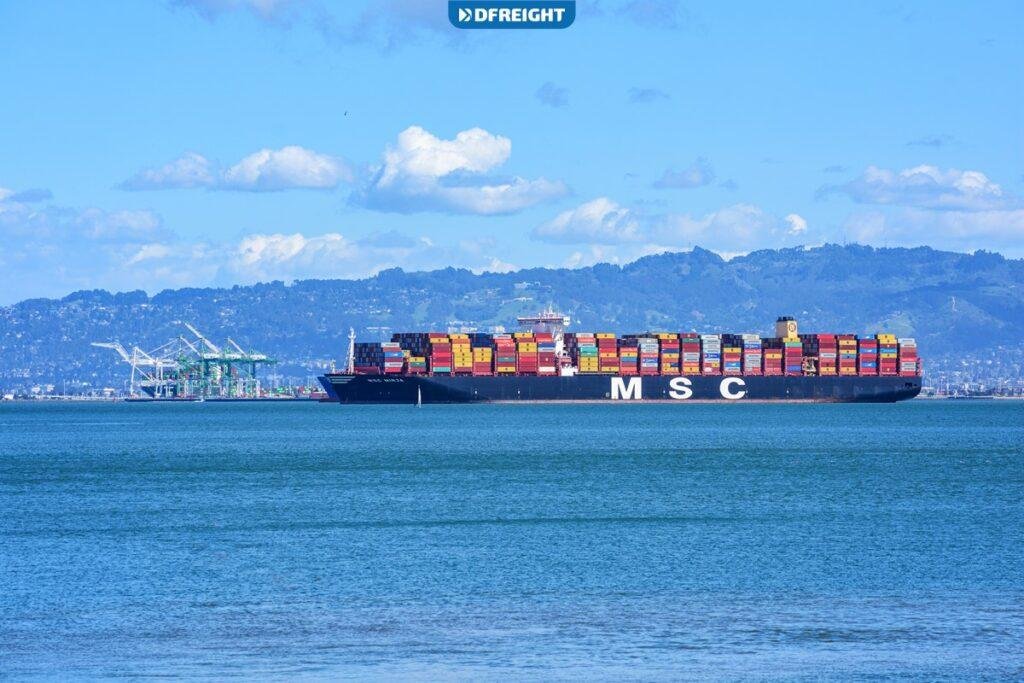The Mediterranean Shipping Company (MSC) is one of the most prominent and influential players in the global shipping and logistics industry. As a family-owned business that was founded in 1970, MSC has evolved from a small shipping venture into a global powerhouse in the maritime transport and logistics sectors. With a fleet of over 600 vessels and a workforce spanning across 155 countries, MSC has cemented its reputation as a global leader in ocean freight and logistics solutions.
A Brief History

Founded by Gianluigi Aponte in 1970 in Naples, Italy, MSC began with a single vessel, the Patricia, which was used to service the Mediterranean region. The company initially focused on regional routes but quickly expanded its services globally. The growth of MSC was fueled by the shipping boom of the 1980s and 1990s, during which the company expanded its fleet and entered new markets, becoming a vital player in container shipping.
In the 1990s, MSC made a major breakthrough by focusing on container shipping, which offered greater capacity and efficiency compared to traditional bulk and breakbulk shipping. The company’s commitment to innovation and quality service allowed it to steadily grow and become one of the top container shipping companies in the world. Today, MSC operates one of the largest fleets of container ships, with vessels servicing over 200 trade routes across the globe.
MSC’s Fleet and Services
MSC’s fleet is renowned for its size and sophistication. As of 2024, the company owns and operates over 600 vessels, including some of the largest container ships in the world. These vessels range in size from small feeders to massive mega-ships capable of carrying over 20,000 twenty-foot equivalent units (TEUs). The company has continuously invested in expanding and modernizing its fleet, integrating the latest technology to improve fuel efficiency and reduce environmental impact.
MSC operates a vast network of shipping routes that connect major ports across Europe, the Americas, Asia, Africa, and the Middle East. With more than 200 trade routes, MSC offers a broad range of transportation services that cater to a diverse clientele, including businesses of all sizes, governments, and industries. This includes container shipping, refrigerated cargo (for perishable goods), and specialized services for oversized and project cargo.
MSC also offers integrated logistics solutions, providing a comprehensive range of services that extend beyond ocean freight. These services include inland transportation, warehousing, distribution, and supply chain management, which are essential for customers who require end-to-end logistics solutions. MSC’s logistics division, MSC Supply Chain, leverages a global network of partners, warehouses, and transport infrastructure to provide tailored solutions for industries ranging from retail and automotive to pharmaceuticals and chemicals.
Innovation and Sustainability
MSC has long been committed to innovation and sustainability in its operations. The company continually seeks ways to optimize its vessels and reduce environmental impacts. In recent years, MSC has focused on making its operations more sustainable by adopting cutting-edge technologies aimed at reducing carbon emissions and increasing fuel efficiency.
One of the key innovations from MSC has been the introduction of ultra-large, fuel-efficient vessels that meet the International Maritime Organization (IMO) emissions regulations. MSC is investing in liquefied natural gas (LNG)-powered vessels, which produce fewer pollutants and contribute to the company’s long-term sustainability goals. Furthermore, MSC has been involved in research and development of alternative fuels and energy-efficient technologies, demonstrating its commitment to reducing the carbon footprint of global shipping.
In addition to these environmental initiatives, MSC is dedicated to improving its social and governance practices. The company is focused on promoting diversity and inclusion, ensuring fair labor practices, and maintaining high ethical standards in all its business operations.
MSC in the Global Shipping Ecosystem
MSC’s growth and expansion over the years have positioned it as a critical player in the global supply chain. It is currently the second-largest container shipping company in the world, after A.P. Moller-Maersk, but it continues to compete fiercely for the top spot. The company’s rapid growth and ability to adapt to changing market conditions have made it resilient in the face of global challenges such as the COVID-19 pandemic, supply chain disruptions, and fluctuating demand for shipping services.
MSC is also deeply involved in the digital transformation of the shipping industry. It has launched various digital platforms and services aimed at improving the efficiency of shipping and logistics operations. MSC’s investment in technology is transforming how goods are tracked, managed, and delivered, creating new opportunities for efficiency gains in the global supply chain.
Challenges and Future Outlook
Despite its success, MSC, like other global shipping giants, faces significant challenges. The fluctuating costs of fuel, changes in global trade patterns, and geopolitical tensions all pose potential risks to the shipping industry. Additionally, the global push for greener practices in logistics and shipping requires MSC to continue investing heavily in sustainable technologies and solutions.
Looking forward, MSC’s future appears strong, with continued investment in fleet expansion, digitalization, and sustainability. The company’s ability to innovate, adapt to market conditions, and provide integrated services positions it well to navigate the evolving landscape of global trade.
Conclusion
Mediterranean Shipping Company has grown from a modest Mediterranean shipping line into a formidable global leader in ocean freight and logistics. Through innovation, sustainability, and a focus on customer-centric services, MSC has successfully navigated the complexities of the global shipping industry. As the company continues to expand and adapt to future challenges, it is poised to remain a dominant force in the world’s shipping and logistics networks for years to come.
ChatGPT can make mistakes. Check important info.